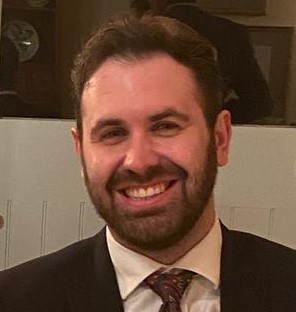This week, a blog regarding exciting innovations in sudden cardiac death from Dr Yakup Kilic.
What?
Researchers as part of the CureHeart project at Oxford University have received a £30 million grant from the British Heart Foundation to fund vital research into the prevention of sudden cardiac death (SCD).
SCD affects 500 people annually in the UK, according to the British Heart Foundation (BHF). This is the term used to describe when the heart unexpectedly stops working, and in turn leads to the death of the person affected.
You may have experienced the trauma of a family member’s unexplained death at a young age. Equally, you may have seen or heard of famous athletes such as Christian Eriksen or Fabrice Muamba collapsing mid-game, requiring CPR on the pitch.
This may be the result of a genetic defect (a mutation in DNA) inherited from one’s parents, such as hypertrophic cardiomyopathy (HOCM) or Brugada syndrome. This condition may also develop later in life – for example due to alcohol misuse or obesity.
Researchers have identified genes that code for certain types of inherited conditions which lead to sudden cardiac death, and in turn are developing strategies to ‘turn off’ these genes. This is called gene therapy and it represents a rapidly growing area of medicine.
Gene therapy programmes describe a process whereby genes that code for these heart conditions are edited out of the genome (the entirety of protein code in a human body unique to every individual). In effect, if these genes can be corrected at an early enough stage, it could prevent the disease developing in family members of those affected by SCD (who carry a faulty gene but have not yet developed the condition).
Why?
One of the most common causes of sudden cardiac death is called cardiomyopathy. Cardiomyopathy is a disease that causes heart muscle to become misshapen and in turn prevents it from functioning normally. You may have heard of terms like dilated cardiomyopathy or hypertrophic cardiomyopathy (HOCM) that describe the way the heart muscle has changed.
When heart muscle becomes unusually shaped, this can affect electrical circuits within the heart that cause it to malfunction. As a result, a small amount of strain on the heart can trigger the ‘wiring’ of the heart to short circuit, leading to cardiac arrest (when the heart stops).
SCD has long been a cause of sudden unexplained death in young people. For those fortunate enough to survive the event after receiving CPR, the usual management strategy centres around preventing a repeat event. This comprises insertion of an implantable cardiac defibrillator (ICD); nicknamed a ‘shock box’, to jolt the patient back into their normal rhythm if the event recurs.

An ICD device
ICDs come with their own issues, such as infections of the wires within the body; and the battery or device itself will likely need to be changed at least once in a person’s life, regardless of whether a shock has ever been delivered.
A key part of research into SCD has centred around preventing these life-threatening events, rather than reacting to them once they have occurred. New gene therapy innovations aim to provide the missing link in the management of SCD. Researchers have already proved the concept of some of these innovations with successful gene therapies in mice, and in limited amounts of human tissue. CureHeart aims to bring these innovations from the lab bench to the clinic.
How (does it affect you)?
Although this may not directly affect you, it is important to raise awareness of sudden cardiac death; to enable more research in this area and improve treatment options for patients living with this condition. This is an exciting development for those at risk of SCD, and we may be only years away from a cure. For those known to have the gene defects that may lead to SCD, researchers at CureHeart say:
We are keen to hear from cardiomyopathy patients and their families, and we are currently piloting a survey to understand what patients with cardiomyopathy (and their families) think about participating in potential gene therapy trials. If you are a patient, or have a family member affected by cardiomyopathy, you can take part in the survey.
And to those interested in receiving the treatment:
The gene therapy treatment that our research team are planning to develop is not yet at the clinical trial stage. It will need to be trialled extensively before it is available in the clinic from your healthcare providers, and we will update [the] website when we begin recruiting for trials.
Currently this research does not apply to ‘acquired’ cardiomyopathies such as those caused by alcohol or obesity. This too however is a growing area of research.
If you or a close family member (such as your sibling or parents) are diagnosed with an inheritable heart condition it may be useful to see your GP to see if you could get tested for these conditions. This may be genetic testing or an ultrasound scan of the heart. If you are at risk of SCD and experience palpitations (a racing or irregular heartbeat), chest pain or difficulty in breathing, always contact 999.
As always, best wishes from myHSN!


